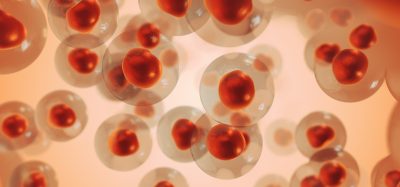Simcere receives clearance to investigate a bi-functional fusion protein drug
Posted: 28 October 2022 | Ria Kakkad (Drug Target Review) | No comments yet
The FDA has cleared the Simcere’s investigational new drug application for SIM0237, an anti-PD-L1/IL-15 bi-functional fusion protein, for the treatment of adult patients with advanced solid tumours.


Simcere Pharmaceutical Group, an innovative global pharmaceutical company, have announced that the US Food and Drug Administration (FDA) has cleared the company’s investigational new drug application for SIM0237, an anti-PD-L1/IL-15 bi-functional fusion protein, for the treatment of adult patients with advanced solid tumours. It is the second IND approval Simcere obtained in the US this year. In addition, the IND application of SIM0237 in China was accepted by the National Medical Products Administration on October 10, 2022.
“There is demonstrated history of PD-1/PD-L1 immune checkpoint inhibitors (ICIs) showcasing strong efficacy in a variety of cancers, but there is a large percentage of oncology patients who are either refractory these therapeutics or develop resistance,” said Dr Bijoyesh Mookerjee, Chief Medical Officer, Oncology of Simcere. “By developing this compound as a bi-functional fusion protein, that combines an anti-PD-L1 antibody with an IL-15 cytokine, we can direct therapeutic activity to the tumour microenvironment, enabling us to potentially limit toxicity while improving tolerability and enhancing efficacy in patients with metastatic or locally advanced solid tumours.”
IL-15 is an immune-activating cytokine that promotes the expansion and activation of natural killer (NK) cells and CD8 + T cells. Previous research has revealed that IL-15 when combined with anti-PD-L1/PD-1 antibodies showed good clinical benefits in patients with advanced malignancies including patients who have either not responded to or have relapsed after immune checkpoint inhibitor treatment. Therefore, bi-functional fusion protein, targeting both IL-15 and PD-1/PD-L1 may have the potential for antitumour efficacy in relapsed and refractory patients after immunotherapy.
Related topics
Biopharmaceuticals, Drug Development, Drug Discovery, Protein, Research & Development
Related conditions
solid tumours
Related organisations
Simcere Pharmaceutical Group, US Food and Drug Administration (FDA)
Related people
Dr Bijoyesh Mookerjee








